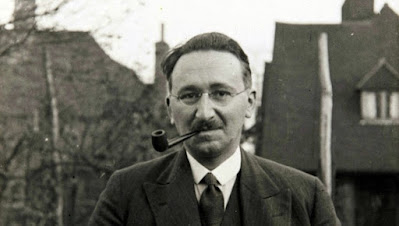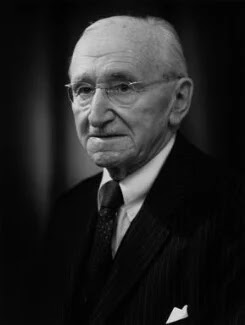"The Road to Serfdom" is a book written by economist and philosopher Friedrich Hayek, published in 1944. It discusses the dangers of central planning, collectivism, and the erosion of individual liberty.
1. Dangers of Central Planning: Hayek argues that the belief in central planning, where the government controls economic resources and activities, is flawed. While central planners claim to have the knowledge and expertise to efficiently allocate resources, Hayek contends that the dispersed and tacit knowledge held by individuals in a society is too vast and complex for any central authority to comprehend. Attempts at central planning lead to unintended consequences, inefficiencies, and a loss of individual freedoms as the government increases its power to enforce its plans. Imagine a government that attempts to centrally plan the entire economy, setting production quotas for every industry and determining what goods and services should be produced. In this system, a group of central planners believes they possess all the necessary knowledge to optimize economic outcomes. However, the complexity of the economy and the diverse preferences of millions of individuals render such planning impractical. Consequently, resources are misallocated, leading to surpluses in some areas and shortages in others. Moreover, this concentration of power in the hands of a few central planners results in diminished individual freedom as the government increasingly intervenes in people's lives.
2. Spontaneous Order: Hayek introduces the concept of "spontaneous order" as an alternative to centralized planning. He posits that social systems, including economies, arise organically through the interactions of individuals pursuing their own interests and goals. These decentralized processes result in a complex, self-organizing system that adapts to changing circumstances without the need for central control. Spontaneous order allows for diversity, creativity, and adaptability, which central planning suppresses. Consider a bustling city with numerous businesses, each independently deciding what products or services to offer based on market demand. Customers freely choose which businesses to patronize, while entrepreneurs respond to changing demands by introducing new innovations. This decentralized decision-making creates a dynamic and adaptable economy without any central authority dictating how businesses should operate. Spontaneous order emerges from the collective interactions of individuals, leading to a thriving and diverse marketplace.
3. Individualism: In "The Road to Serfdom," Hayek extols the virtues of individualism as the foundation of a free society. He argues that a society can only flourish when individuals are free to pursue their own goals and interests within the framework of the rule of law. Individual freedom fosters diversity and enables people to develop their unique talents and abilities, leading to innovation and progress. In a society that values individualism, individuals are free to pursue their passions and ambitions. Entrepreneurs have the liberty to start businesses, artists express their unique visions, and scientists explore new frontiers of knowledge. This celebration of individuality fosters a culture of innovation and creativity, where people contribute their distinct talents to enrich the community.
4. Rule of Law: Hayek emphasizes the importance of the rule of law as a safeguard against arbitrary rule. The rule of law ensures that individuals are treated equally, regardless of their status or power, and that their rights and property are protected from government encroachments. A consistent and impartial legal system limits the government's ability to abuse its authority and provides a framework for individual freedom to flourish. In a country where the rule of law is upheld, everyone is subject to the same laws, irrespective of their social status or wealth. The legal system protects individual rights, ensuring that property is secure and contracts are enforceable. As a result, people have confidence in the fairness and predictability of the legal system, and they are more willing to engage in economic and social activities.
5. Collectivism and Totalitarianism: Hayek criticizes collectivist ideologies, such as socialism and communism, which prioritize collective interests over individual rights. He warns that embracing such ideologies can lead to the concentration of power in the hands of the state, resulting in authoritarian regimes. The erosion of individual liberties and the suppression of dissent are common features of totalitarian societies, where the government exercises vast control over people's lives. Consider a society where the government prioritizes the welfare of the collective over individual freedoms. As the state gains control over major industries, it regulates and censors information to suppress dissenting views. Citizens who dare to criticize the government face severe repercussions, and the state becomes increasingly authoritarian. In the quest for collective equality, individual liberties are sacrificed, leading to a society dominated by a powerful and oppressive government.
6. Economic Planning and Freedom: Hayek argues that economic planning, where the government attempts to control production, distribution, and consumption of goods and services, curtails economic freedom. Centralized economic planning is impractical because it requires the central planners to have access to an impossibly large amount of information about individual preferences and resource availability. Additionally, it undermines the coordination mechanisms provided by the price system, leading to inefficiencies and waste. Imagine a centrally planned economy where the government sets prices and production targets for all goods and services. Despite the planners' intentions, they are unable to gather enough information to make informed decisions about people's preferences and resource availability. Consequently, essential goods may be in short supply, and resources may be wasted on projects that are not economically viable. The lack of economic freedom stifles entrepreneurship and discourages risk-taking, hampering economic growth and prosperity.
7. Limited Government: "The Road to Serfdom" advocates for limited government intervention in society. Hayek believes that a minimal state, focused on protecting individual rights and maintaining the rule of law, is essential for preserving freedom. He cautions against an ever-expanding government, as it tends to accumulate power, erode individual liberties, and become increasingly difficult to control or restrain. In a society with limited government, the role of the state is clearly defined and restricted to maintaining law and order, enforcing contracts, and protecting individual rights. Citizens are free to pursue their interests and live their lives without constant interference from the government. The limited state focuses on its core functions, ensuring that individual liberties remain intact and that power is not abused.
8. Freedom of Speech and Expression: Hayek emphasizes the crucial role of freedom of speech and expression in a free society. The ability to openly discuss ideas, challenge existing beliefs, and engage in public discourse is essential for intellectual progress and societal advancement. Restricting free speech hinders the exchange of diverse perspectives and leads to intellectual conformity, impeding societal development. Picture a society where freedom of speech is upheld as a fundamental right. People can openly express their opinions, engage in public debates, and challenge prevailing ideas without fear of persecution. This free exchange of ideas allows for intellectual progress, the discovery of new truths, and the exploration of diverse perspectives. It encourages the growth of knowledge and creates a vibrant and informed society.
9. The Role of Competition: Hayek highlights the importance of competition in economic and social life. Competition among individuals and businesses drives innovation, efficiency, and economic growth. It encourages the continuous improvement of products and services and rewards those who satisfy consumer demands most effectively. Competition also acts as a safeguard against monopolies and excessive concentrations of power. In a competitive market, various businesses strive to offer better products or services than their rivals. This drive for excellence leads to innovations, lower prices, and improved customer experiences. Consumers benefit from a wide range of choices and have the power to influence the market through their purchasing decisions. Competition acts as a self-regulating force that encourages businesses to continuously improve and adapt to changing circumstances.
10. The Road to Serfdom: The central thesis of the book is that when societies embrace collectivist ideologies and grant more power to the state, it can lead to a gradual erosion of individual freedoms and result in a "road to serfdom." As the government assumes greater control over people's lives and economic activities, personal liberty diminishes, and the individual becomes increasingly subordinate to the state. Hayek warns that this path ultimately leads to totalitarianism and the loss of the individual's ability to make meaningful choices for themselves. Imagine a nation that embraces collectivist ideals and steadily expands the role of government. As the state grows more powerful, it intervenes in various aspects of people's lives and economic activities. Over time, individual freedoms erode, and citizens become increasingly dependent on the government for their needs. The "road to serfdom" is a gradual path towards totalitarianism, where personal liberties are sacrificed for the promise of security and equality, resulting in the loss of individual autonomy and self-determination.






Comments
Post a Comment
Thanks for leaving comments. You are making this discussion richer and more beneficial to everyone. Do not hold back.